The very best sheets from luxury, cooling bed sheets to budget choices
These bed sheets are so good, you'll never want to leave bed

Tamara Kelly
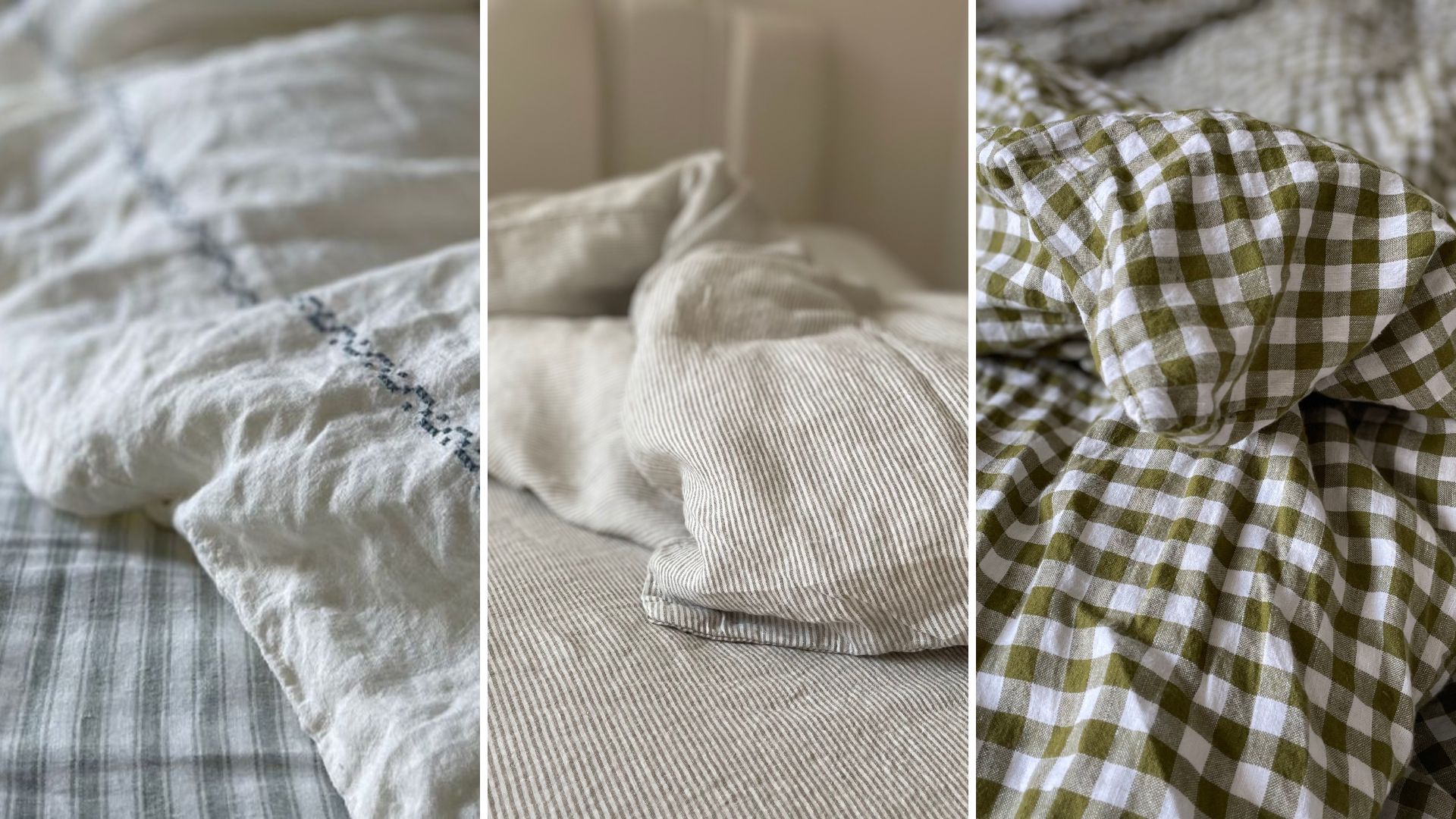
We spend at least a third of our lives asleep — and if you’re anything like me, an even bigger proportion of that is spent luxuriating in bed with a book, a brew, or just a well-earned lie-in. That’s why choosing the best bed sheets isn’t just about aesthetics or thread counts; it’s about finding the right texture, feel, and performance to match your sleep style.
I grew up with the luxury of crisp Egyptian cotton from The White Company, so I knew what “good” felt like early on. But when I first had to buy my own bedding, I was completely overwhelmed. What is the best thread count for bed sheets? What kind of weaves will feel good against my skin? And is linen or cotton the best fabric for keeping me cool at night? I left the shop more confused than when I arrived and ended up with cheap sheets that didn’t last the year.
Fast forward five years, after working at The White Company and testing some of the softest bed sheets on the market, I now know exactly what to look for — and what to avoid. One of the biggest myths I’ve uncovered is that people think softness always means a sky-high thread count. In reality, the best sheets come in all kinds of fabrics — from breathable linen to buttery sateen — and suit a range of budgets. So whether you’re after hotel-style luxury, fuss-free maintenance, or just something that feels lovely against your skin, I've tested all the sheets in this guide to help you find your perfect match.
The best bed sheets, tested and approved by us
The right sheets are one of the most influential factors that will help you to sleep at night — and it'll impact how refreshed you feel in the morning. As Emily and Jonathan Attwood, founders of sustainable bedding brand scooms, put it: “The bed linen you choose will be in direct contact with your skin all night, so it should feel just right.”
That means paying attention to more than just price or pattern. From cool, crisp percale to silky-soft sateen and breathable linen, different weaves and fabrics create completely different sleep experiences. The Attwoods recommend choosing “the best quality, natural materials” — like long-staple Egyptian cotton or garment-washed linen — as these “will ensure you’re on track to get the best night’s sleep.”
But there’s more to consider than just feel. Thread count is often touted as the hallmark of quality, but it’s not as simple as ‘the higher, the better.’ According to the Attwoods, while a thread count between 400–600 is ideal, “some manufacturers artificially inflate these numbers by twisting multiple low-quality yarns together.” So it’s worth looking for brands that are transparent about their materials — and that carry certifications like OEKO-TEX, which guarantees your bedding is free from harmful chemicals. With that in mind, let's take a look at the sheets that I got my best beauty sleep on.
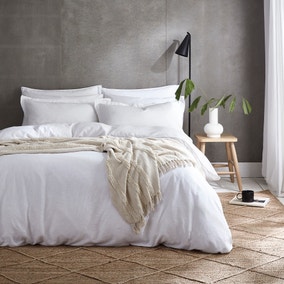
RRP: £25 | Composition: 55% cotton 45% linen | Thread count: 144-1,000 | Sizes available: Super King, King, Double, Single | Care instructions: machine washable
+ Feels really premium and gentle
+ Classic style options with multiple colours
- Feels scratchy at first (keep washing it)
The word on the sheets for the last year has been that Dunelm’s linen is actually some of the best you can buy. Whilst prices soar for luxury brands, Dunelm’s have stayed steady, offering a beautiful range of colour options as well as sensational comfort levels. They’re light and breathable to sleep with and, whilst they’re not as soft as luxury linen on the first time around, they only get softer as you keep sleeping in them.
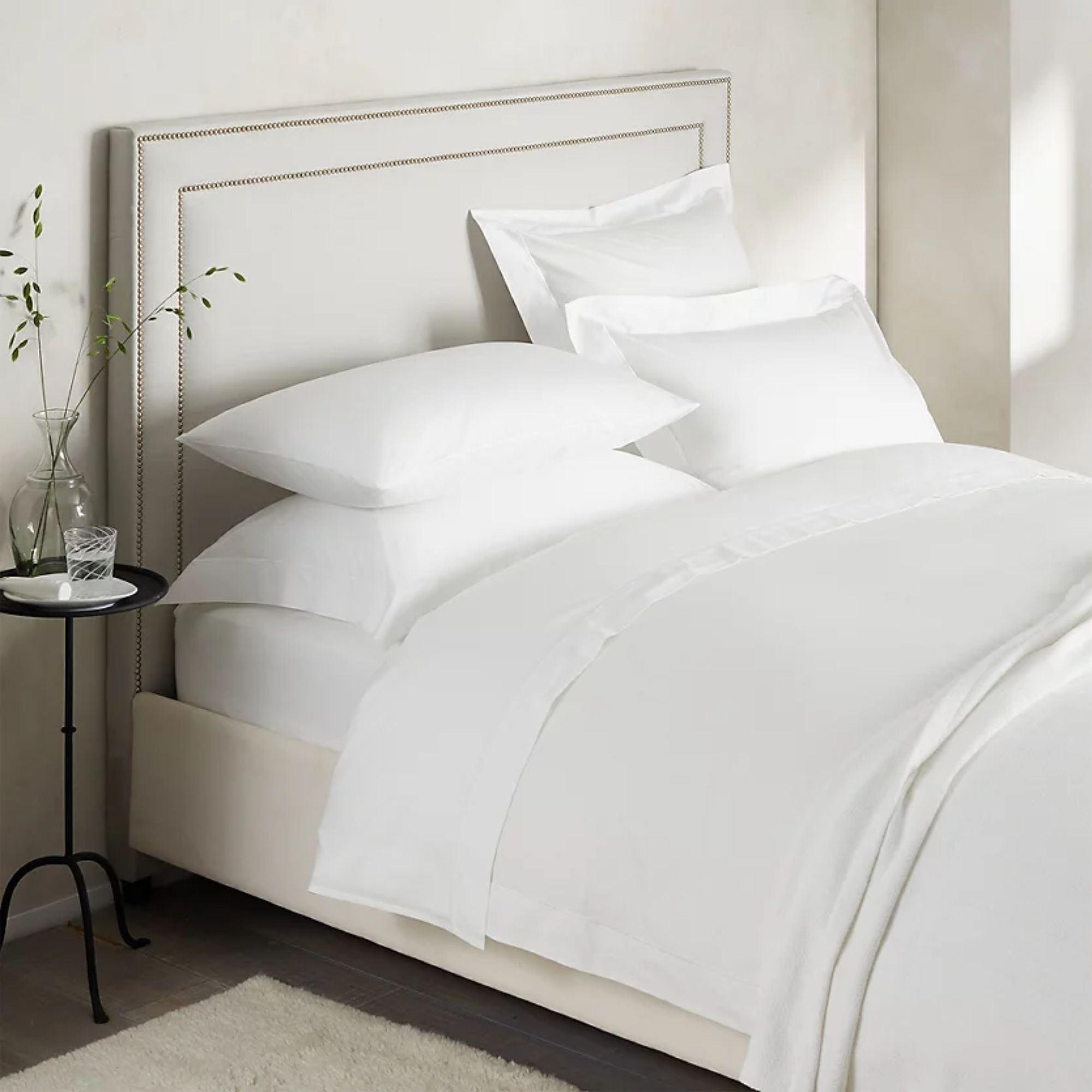
RRP: £22-195 | Composition: 100% 400-thread-count Egyptian cotton | Thread count: 400 | Sizes available: Emperor, Super King, King, Double, Single | Care instructions: machine washable
+ Incredible quality and longevity
+ Luxury cording detail
- Limited colour options
It is no exaggeration to say that my family has owned these sheets for 25 years. They’ve been through a lot with us, but looking at them, you wouldn’t have a clue. They’re almost as white as day dot, the buttons are mostly in tact (bar for one duvet), and they strike a smart silhouette on the bed. I know they might seem more expensive up front, but 25 years of sleeping on them makes long-term financial sense. That price is only going down each night too
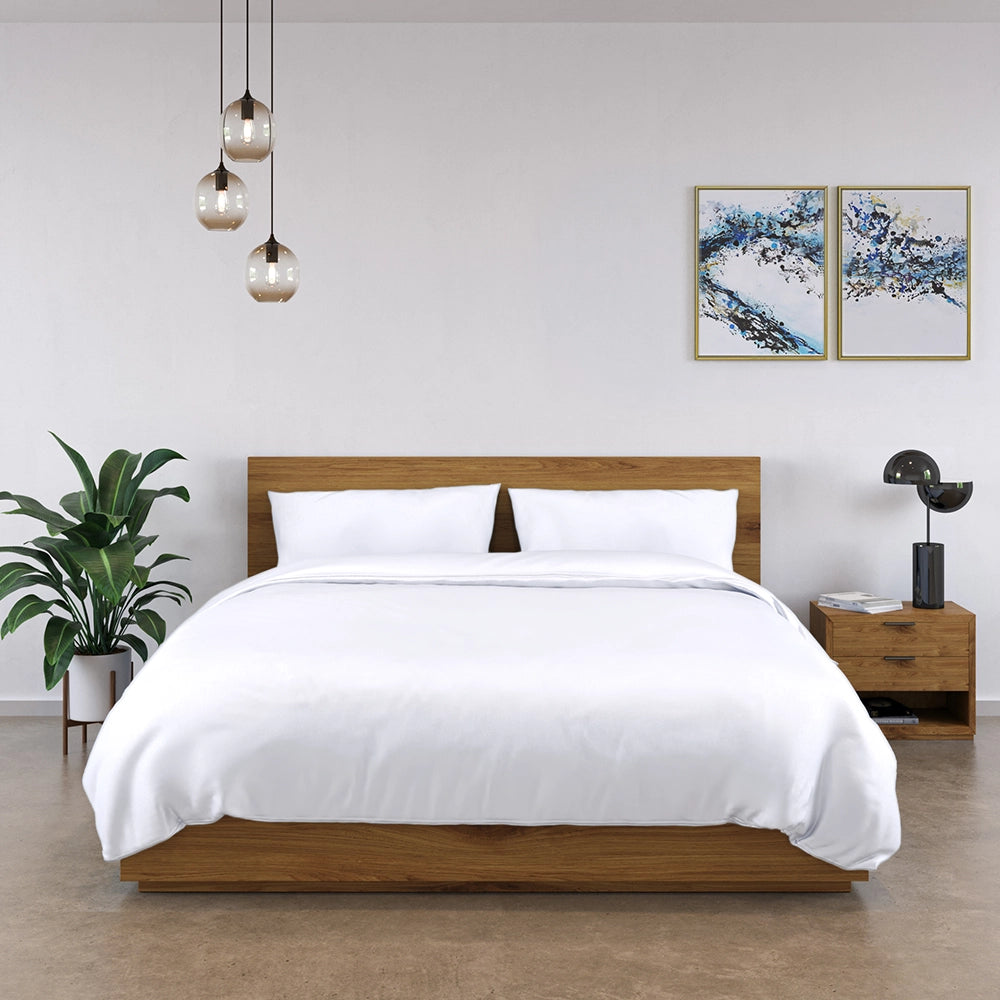
RRP: From £110 | Composition: 100% rayon from bamboo | Thread count: 320 (equivalent of 1,200 in cotton) | Sizes available: Super King, King, Double, Single | Care instructions: machine washable
+ Incredibly cooling and hypoallergenic
+ Organic and sustainable option
- Slippery feeling isn't for everyone
All bamboo sheets take some getting used to. They’ll feel slippery when you first lie on them, but if you’re a hot sleeper, stick with it. These are incredibly cooling and have been a lifeline for lots of women suffering from night sweats. These take the edge over all other bamboo sheets thanks to their impressive environmental credentials, unrivalled quality, and other nice touches, including bamboo buttons and hanging loops. It’s the full package.
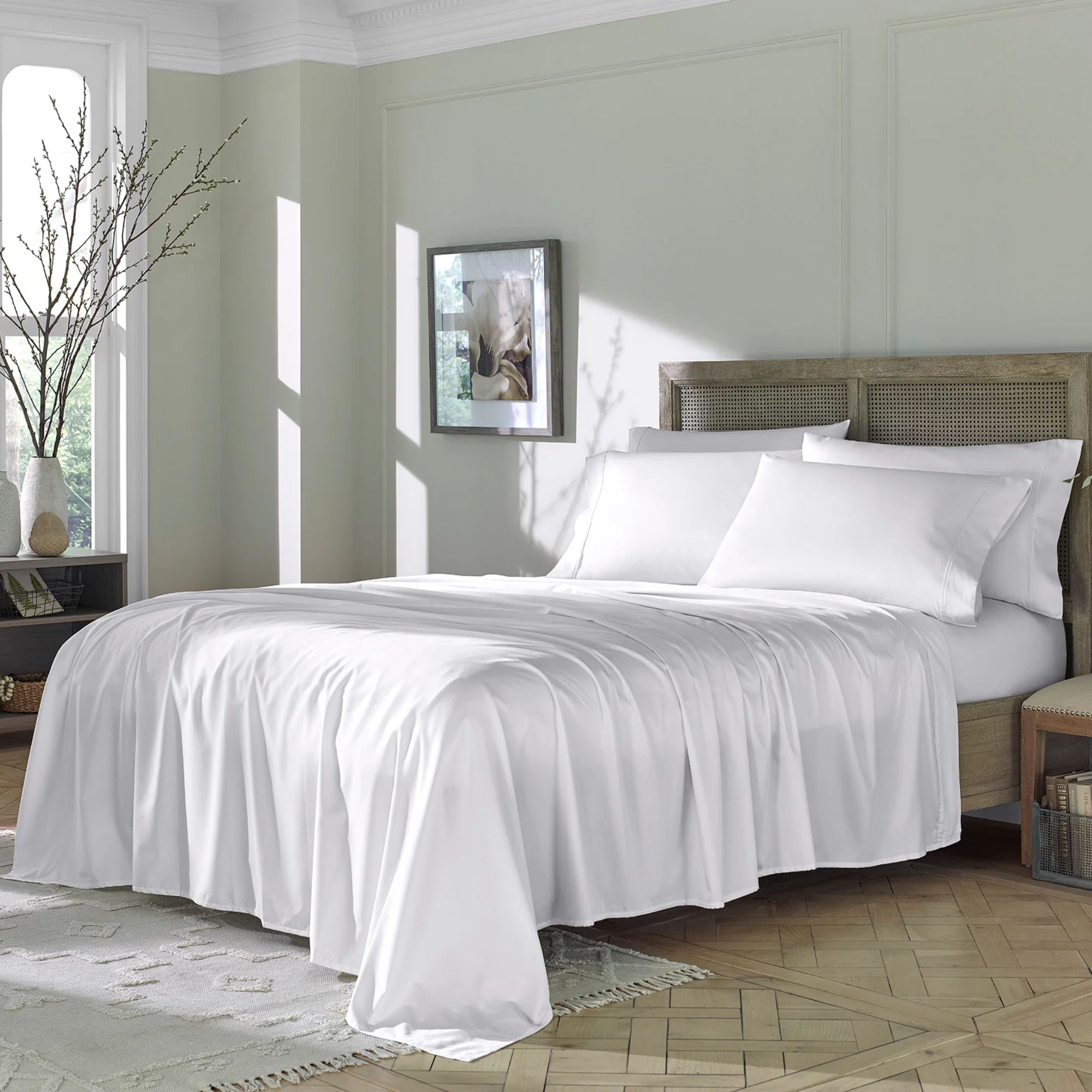
RRP: £119 | Composition: 100% cotton | Thread count: 300 | Sizes available: King, Double, Single | Care instructions: machine washable
+ Perfect for night sweats
+ Soft, silky feel
- Price adds up with different components
These sheets are very similar in eco-credentials to the bamboo and I first came across them when the founder of Ethical Bedding pitched them on Dragon’s Den. Designed to feel like silk, they’re almost fluid on the bed, beautifully soft on the skin, and gentle on your body. Yes, they are a little more than your polyester sheets, but they are worth the splurge. I am a hot sleeper and I actually got too cold sleeping in these sheets. You can’t beat that.
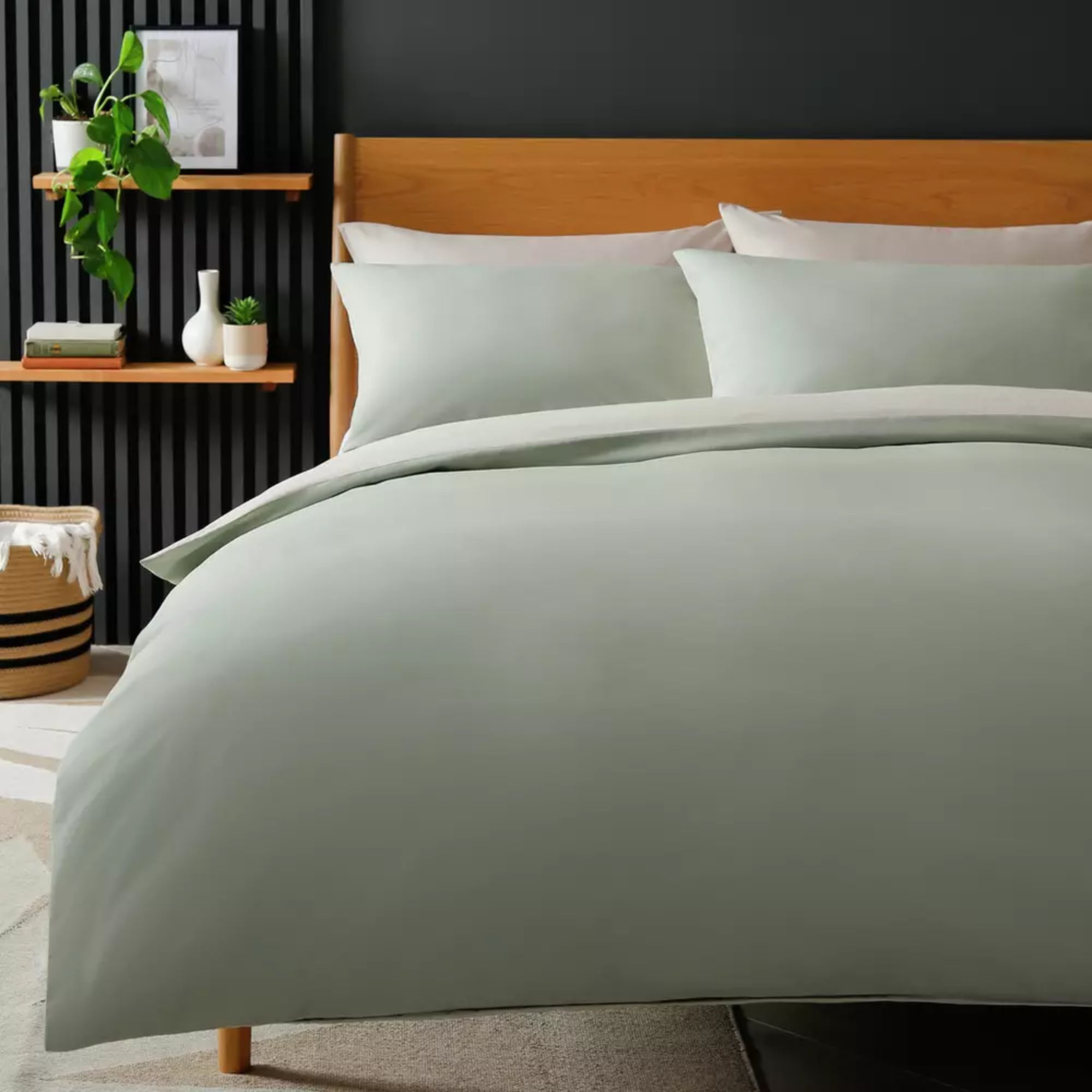
RRP: £11 | Composition: 52% polycotton, 48% cotton | Thread count: 144 | Sizes available: King, Double, Single | Care instructions: machine washable
+ Low-maintenance, easy care
+ Lots of colour and style options
- Quite hot to sleep in
If you like the feel of cotton, but not the faff of ironing and the price of pure threads, polycotton will be your new best friend. Next's polyester cotton blend is one of the most premium-feeling sets that I've slept on and it's OEKO-TEX certified, which means that it's safe to sleep on. There's an endless array of colours at a dreamy price.
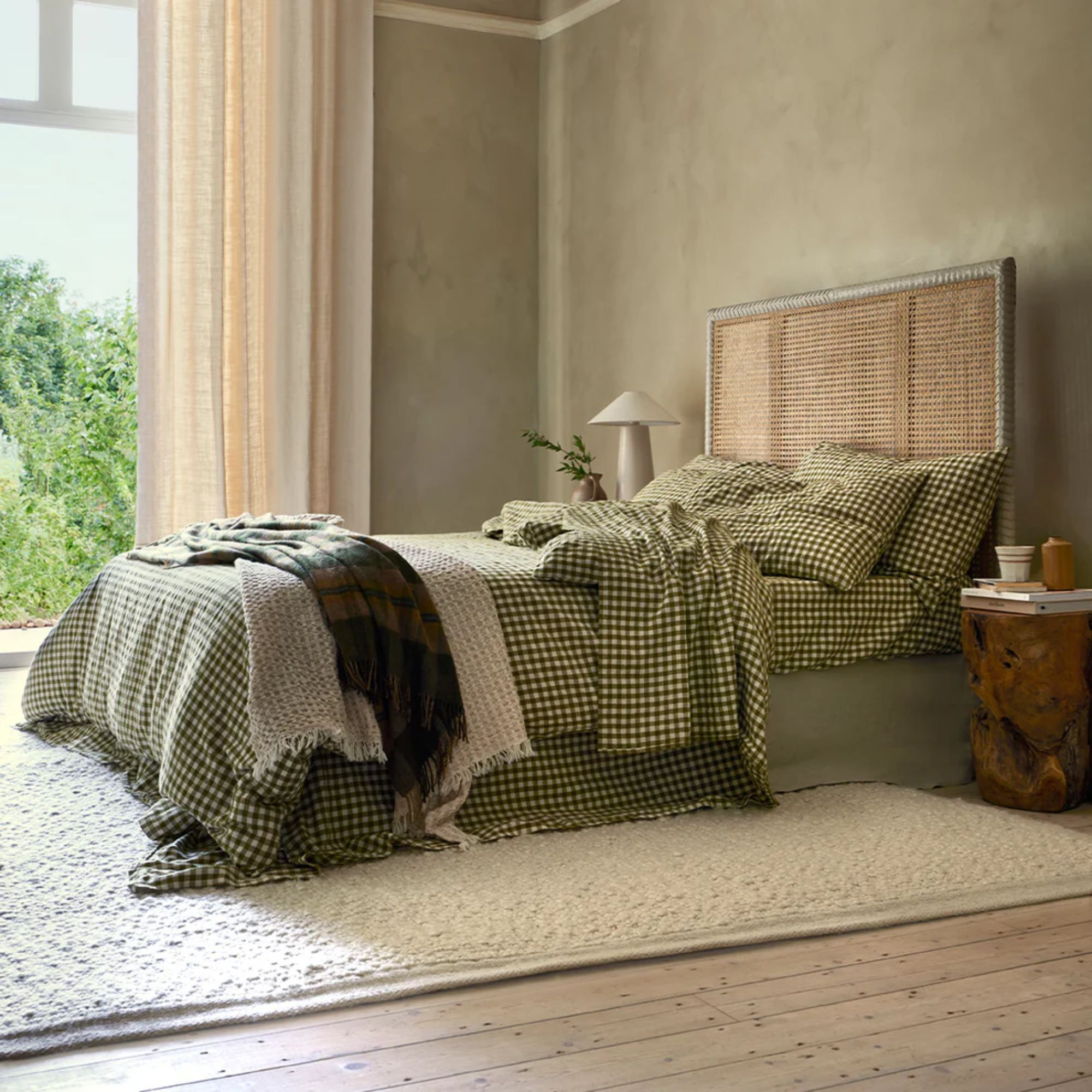
RRP: from £45 | Composition: 55% European linen, 45% long staple cotton | Thread count: 120 | Sizes available: Super King, King, Double, Single | Care instructions: machine washable
+ Made with premium, sustainable materials
+ Plenty of style options
- Expensive
Linen doesn't get lovelier than this. Whether you want cosy checks, European lines, pretty patterns, or solid colours, you can pick pure linen bedding or a blend of European linen and long-staple cotton. It's top quality (and feels it). It's breathable, pre-washed, and free from harmful chemicals and dyes. It's an investment worth making.
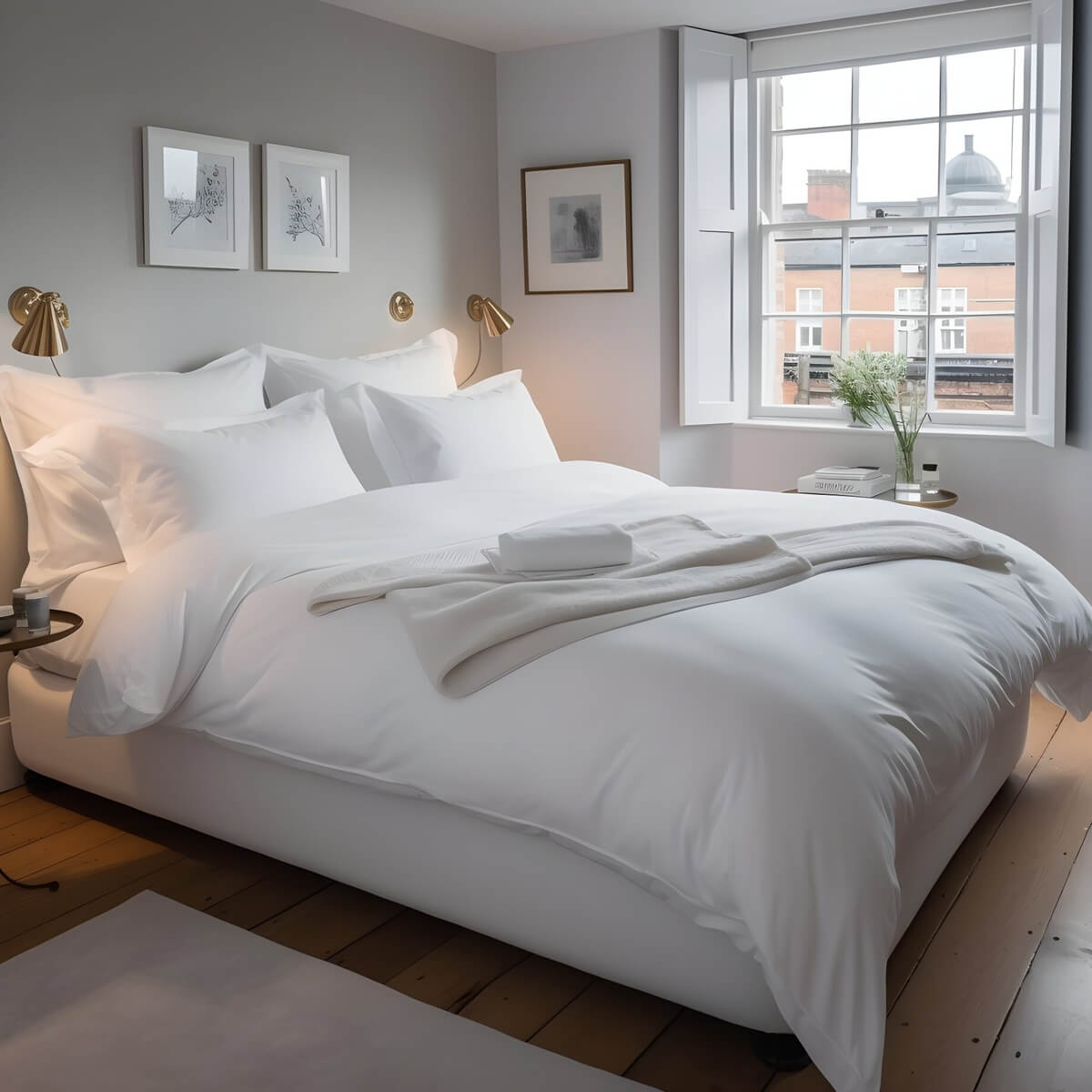
RRP: From £160 | Composition: 100% Egyptian cotton | Thread count: 500 | Sizes available: Emperor, Super King, King, Double | Care instructions: machine washable
+ Classic style
+ Weighty and soft feel against skin
- Can get expensive
If you're chasing the luxury hotel feeling for your bed, these sheets get five stars. They come complete with high-quality thread count, single-ply Egyptian cotton yarn that's feels supreme against skin. Crisp and cool, you'll be slumbering in style. Just keep your eyes peeled for a discount code.
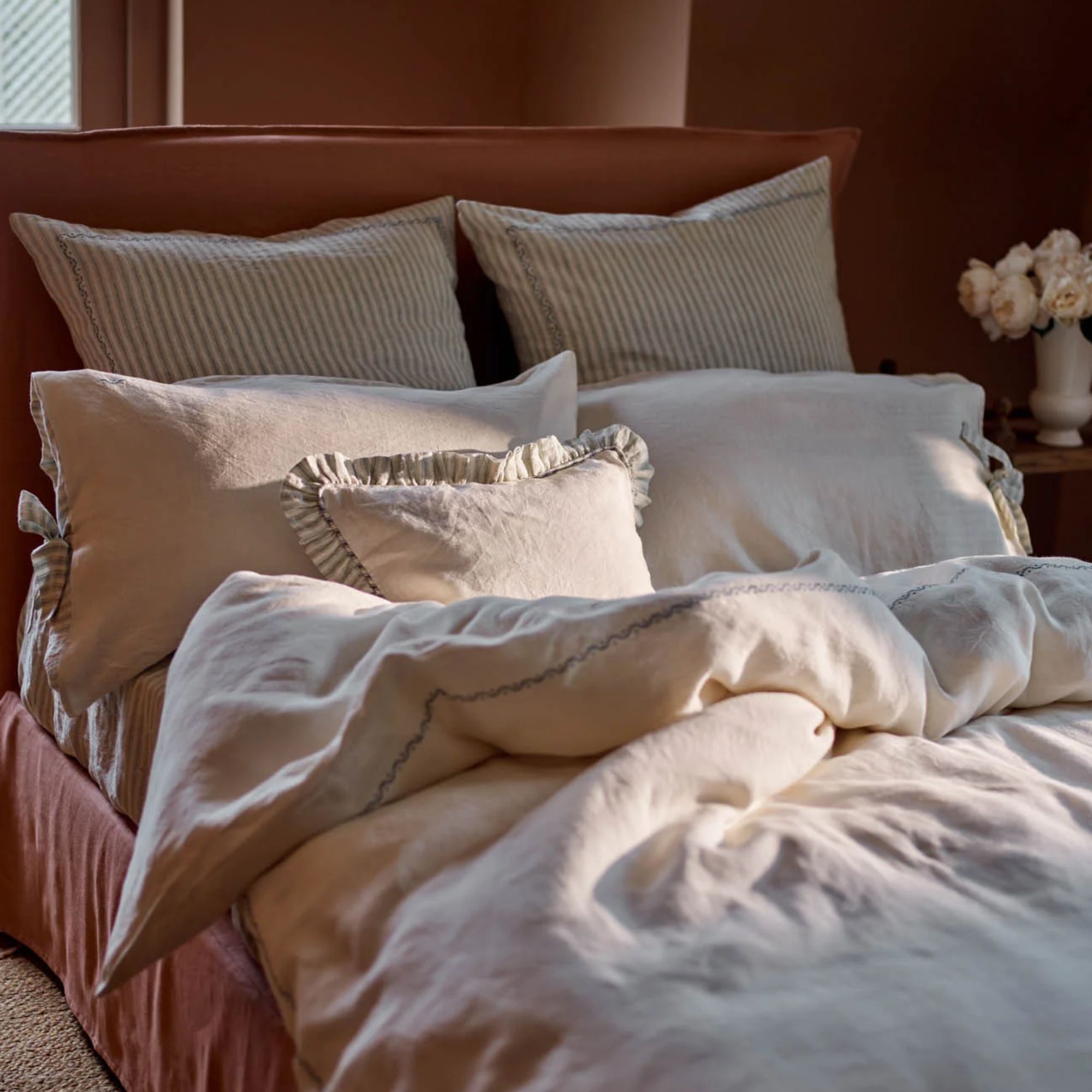
RRP: £20 | Composition: 100% cotton | Thread count: 300 | Sizes available: King, Double, Single | Care instructions: machine washable
+ Uniquely special design
+ Ultra-luxurious feel
- Expensive
I would never normally spend this much money on bedding normally, but I treated myself with these. One year later, I don't regret it. The hand-stitching is beautiful, it feels cosy without being twee, and the linen is next-level quality. You'll also spot special mother of pearl buttons and, if you want to buy the set in parts, they're all sold separately. You can mix and match with some affordable linen too.
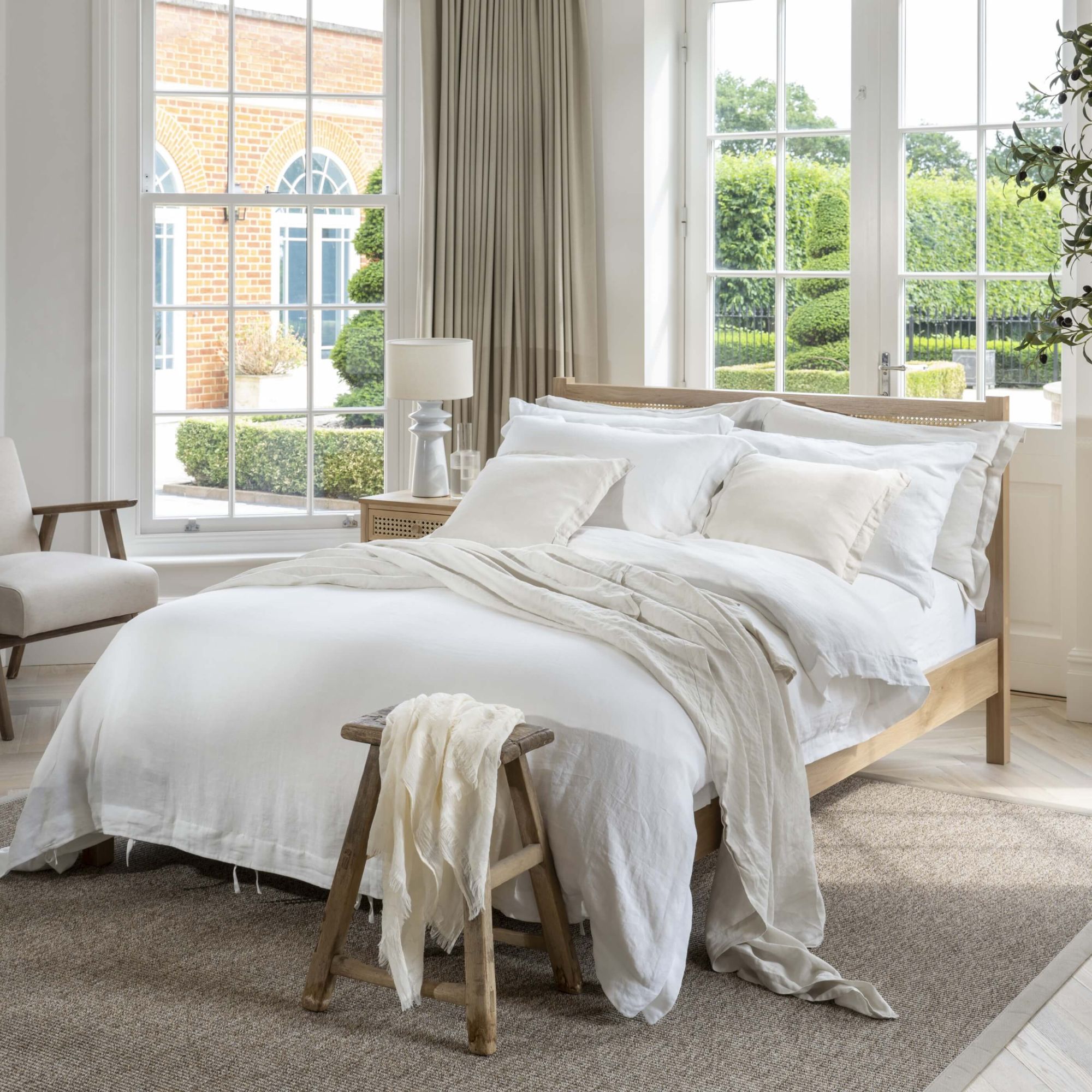
RRP: From £29.40 | Composition: 100% Normandy flax linen | Thread count: 200-600 | Sizes available: Super King, King, Double, Single | Care instructions: machine washable
+ Sold as bundles or separately
+ Lots of colour options
- Relaxed linen look isn't for everyone
People say that French women get good sleep and, after lying in these linen sheets, I’ve found out their secret. With an effortless slub and pretty bow ties at the bottom, these sheets look beautiful without needing any maintenance or attention. You’ll wake up with your skin feeling refreshed and — this is a real bonus — there’s an endless range of colour options on offer.
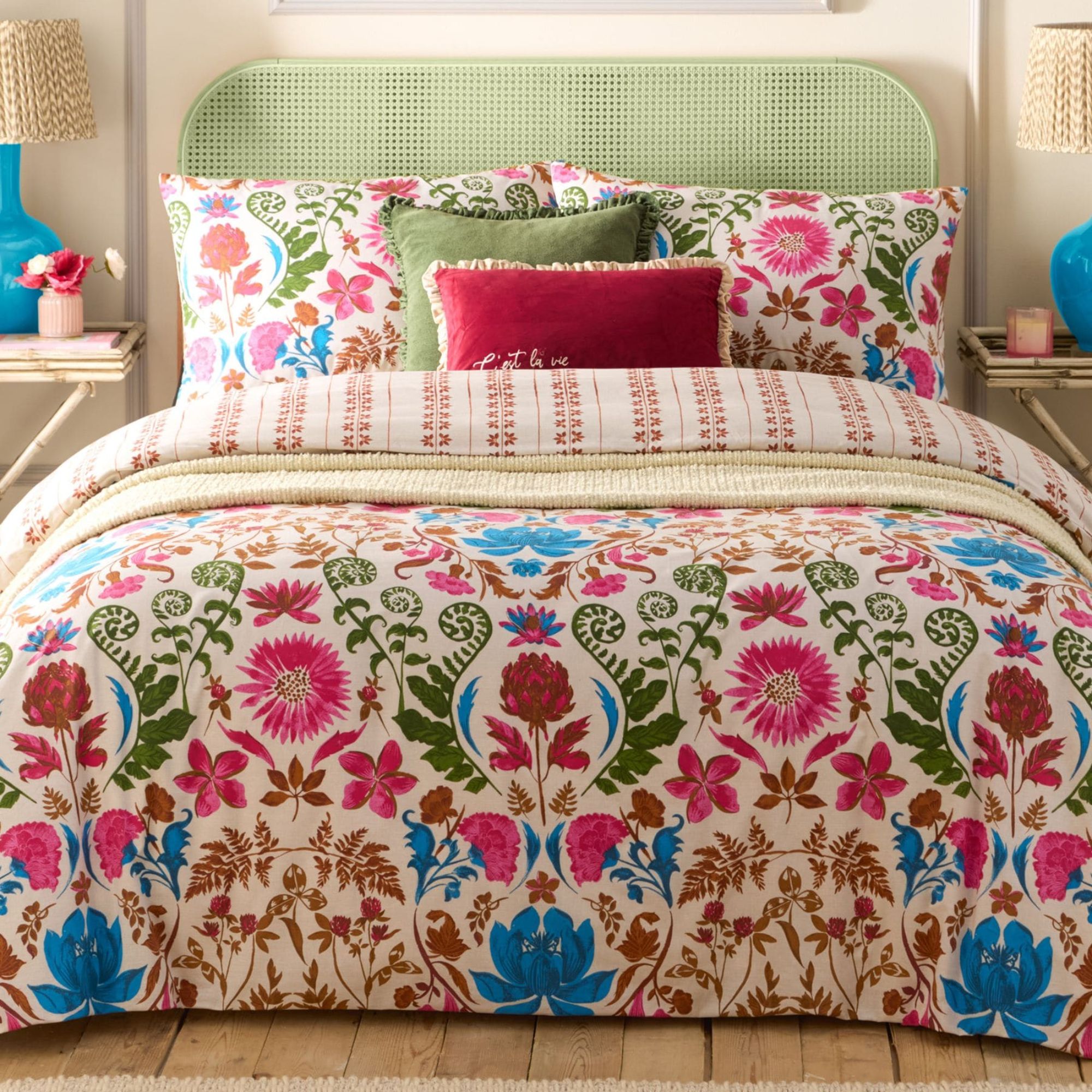
RRP: From £16 | Composition: 50% cotton, 50% polyester | Thread count: 144 | Sizes available: Super King, King, Double, Single | Care instructions: machine washable
+ Eye-catching design
+ Low maintenance and easy care
- Sleeps quite hot
Next’s bedding collection is nothing short of beautiful. I’ve been loving all the Furn sheets and this is their best-seller. The exotic floral and forna on this bedding makes for a stunning statement. Plus, it's low-maintenance and easy to keep looking pristine.
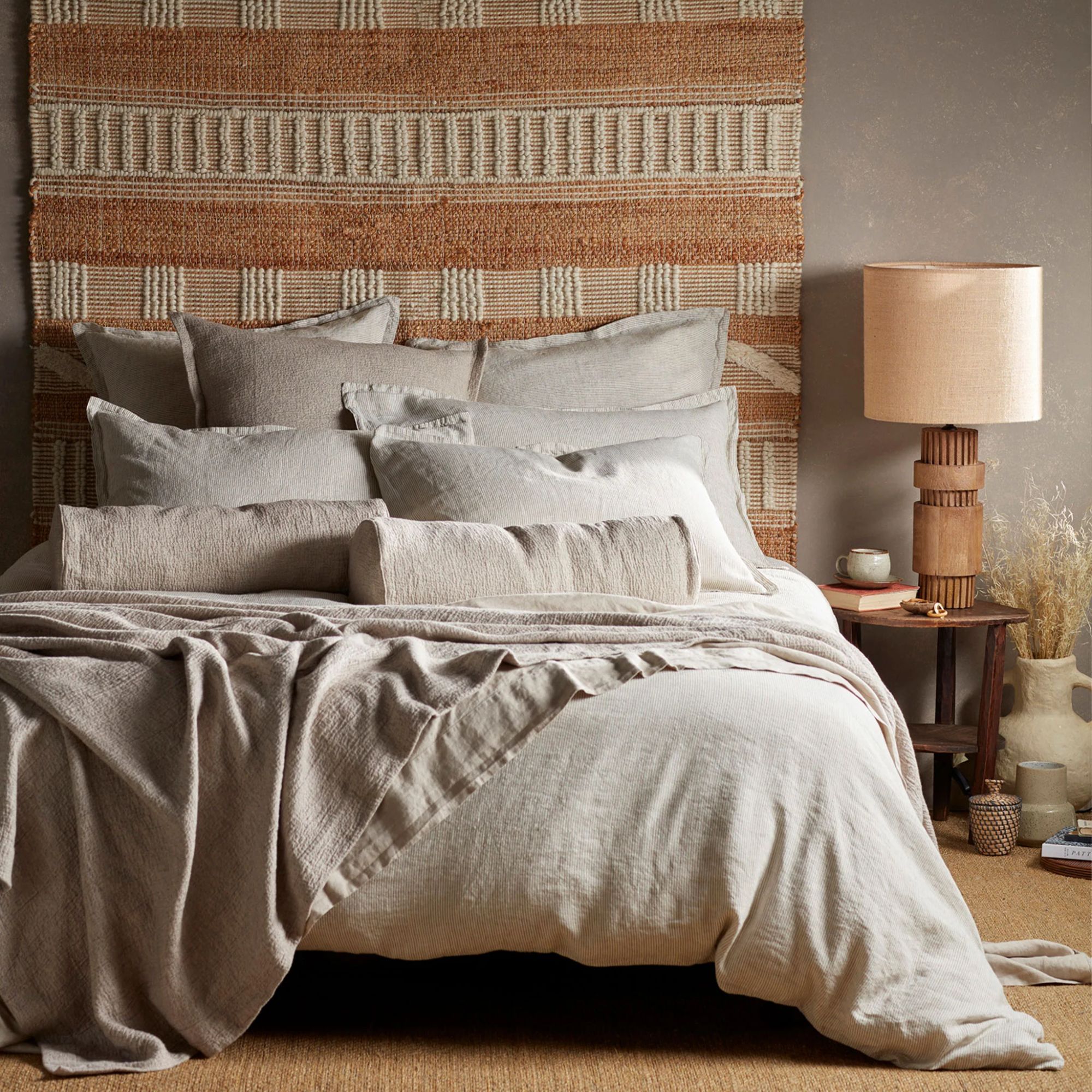
RRP: From £70 | Composition: 100% cotton | Thread count: 200-1,000 | Sizes available: Emperor, Super King, King, Double, Single | Care instructions: machine washable
+ Endless style and colour options
+ OEKO-TEX-certified and gentle on the skin
- Expensive
Made with Portuguese linen, this is some of the best bedding you can buy. Secret Linen Store have been the connoisseurs of natural bedding for over a decade and these sheets are why. It's light-as-air to sleep under, which feels lovely, especially in hot weather. Even better, it's free from harmful chemicals ad the flax is grown responsibly. Sweet dreams are made of these sheets.
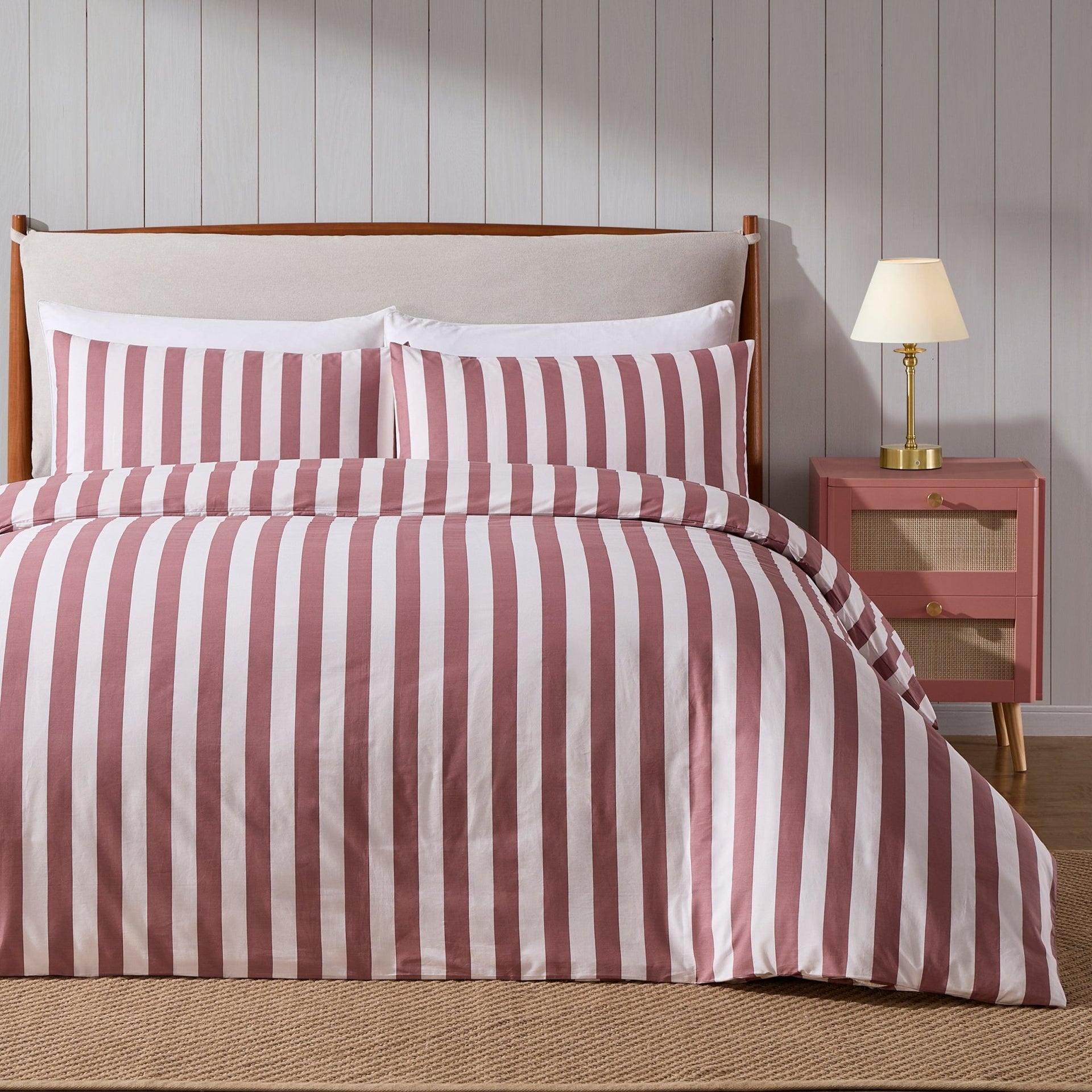
RRP: From £30 | Composition: 100% cotton | Thread count: 200 | Sizes available: Super King, King, Double, Single | Care instructions: machine washable
+ Incredible value for money
+ Cooling and gentle on the skin
- Hotter than linen
Available in three classic colourways, this wide stripe is perfect for all-year-round sleeping. The cotton offers a crisp, fresh look whilst sitting softly against your skin. Your skin will feel fresh when you wake up, thanks to the naturally moisture-wicking properties. It's a classic for any bedroom.
We're currently testing
Aside from testing the best Christmas bed sheets, we've been sleeping on some sheets that we just want wait to share with you. Here's a little preview of what we think so far.
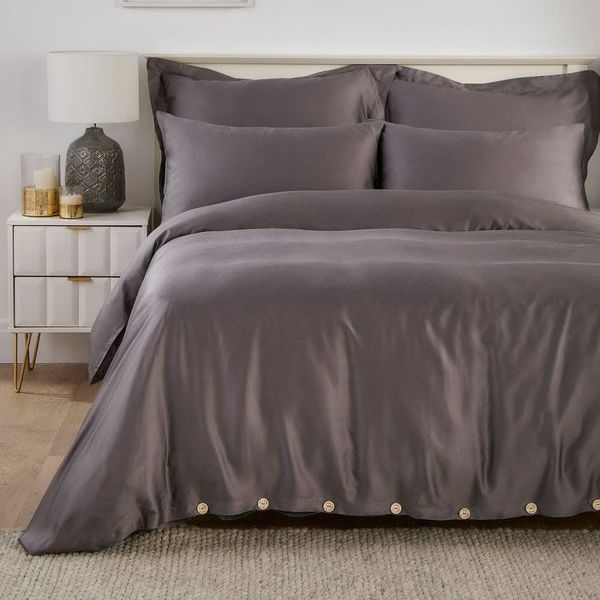
Bamboo bedding is always hot stuff at woman&home: it's silky softness feels soothing against your skin and naturally helps to regulate your temperature through hot flushes and night sweats. Not all bamboo bedding is made equally though, so it's worth noting that this is some of the best. It feels as good as its sustainable credentials sound.
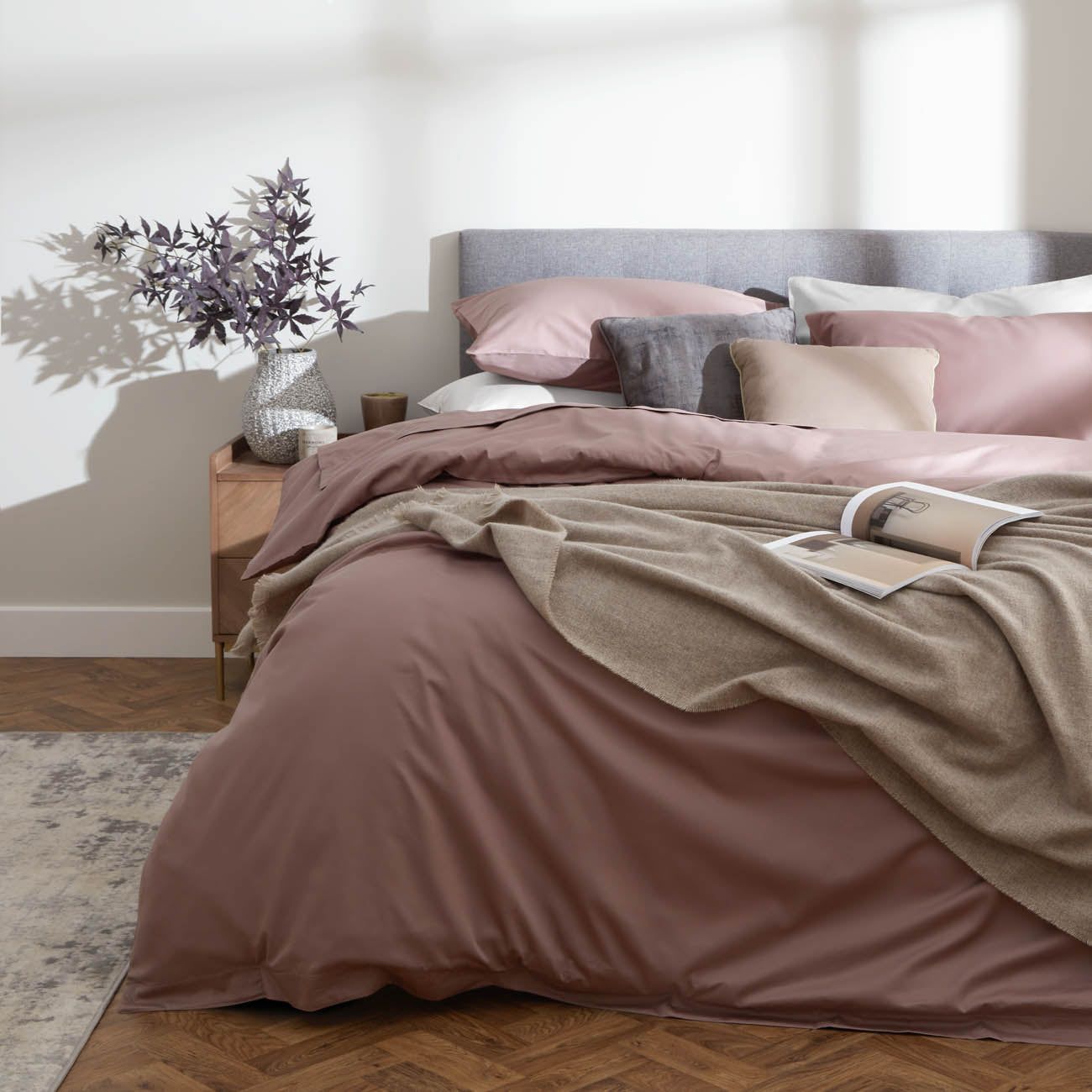
Available in percale and sateen, these organic sheets offer something to every kind of sleeper. There are plenty of patterns and colours to choose between, offering sophistication to every bedroom. So far, we love how crisp and soft these are to sleep in. They certainly have the have the five-star hotel feel.
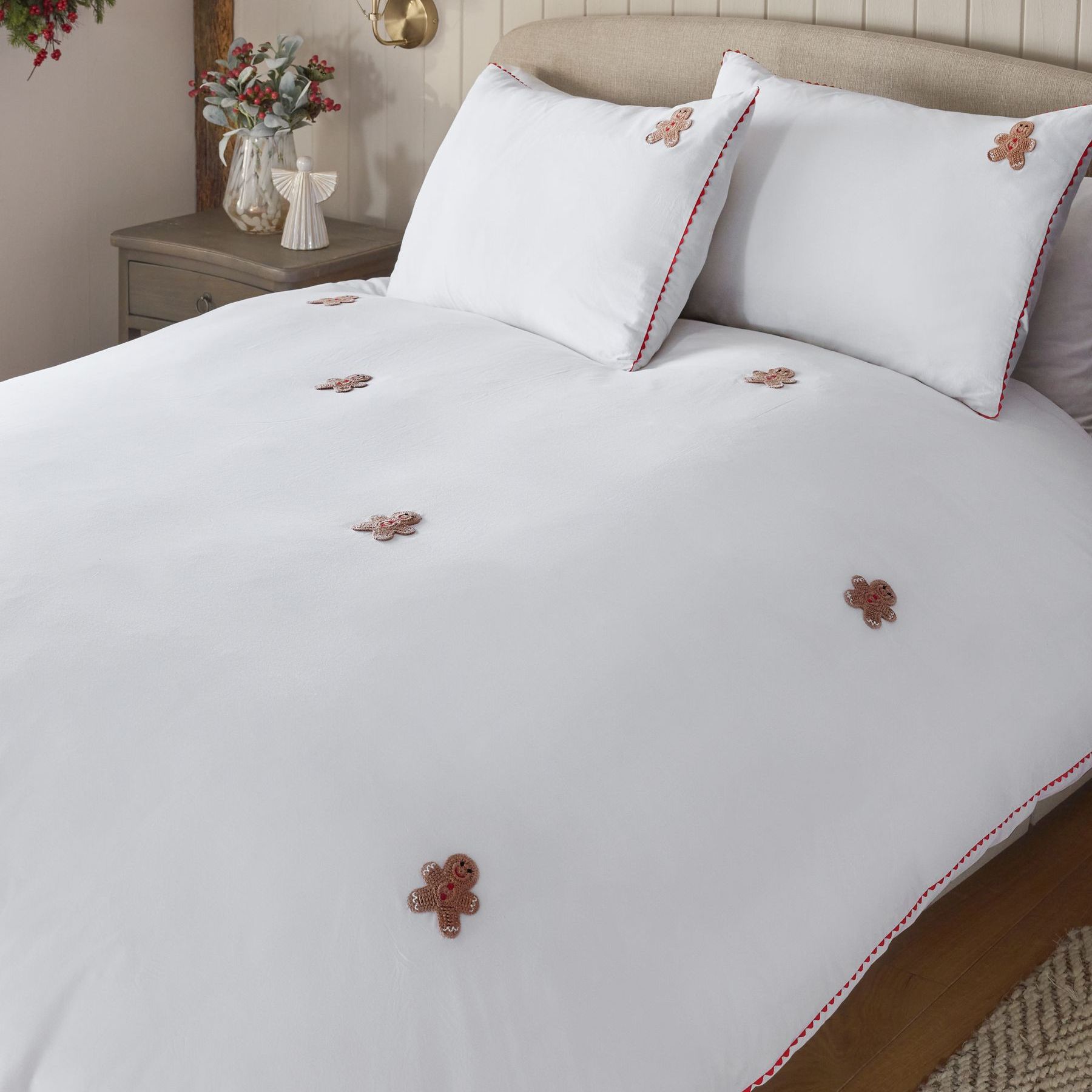
I'll let you in on a sneak peek of our Christmas bedding: it's adorable. Scattered with charming crochet gingerbread and finished with a red ric rac trim, this has festive fun sewn right in. It's crisp, 100% cotton, which feels beautiful against hotter skin, plus it looks smart when the bed is made up too.
How we tested the best bed sheets
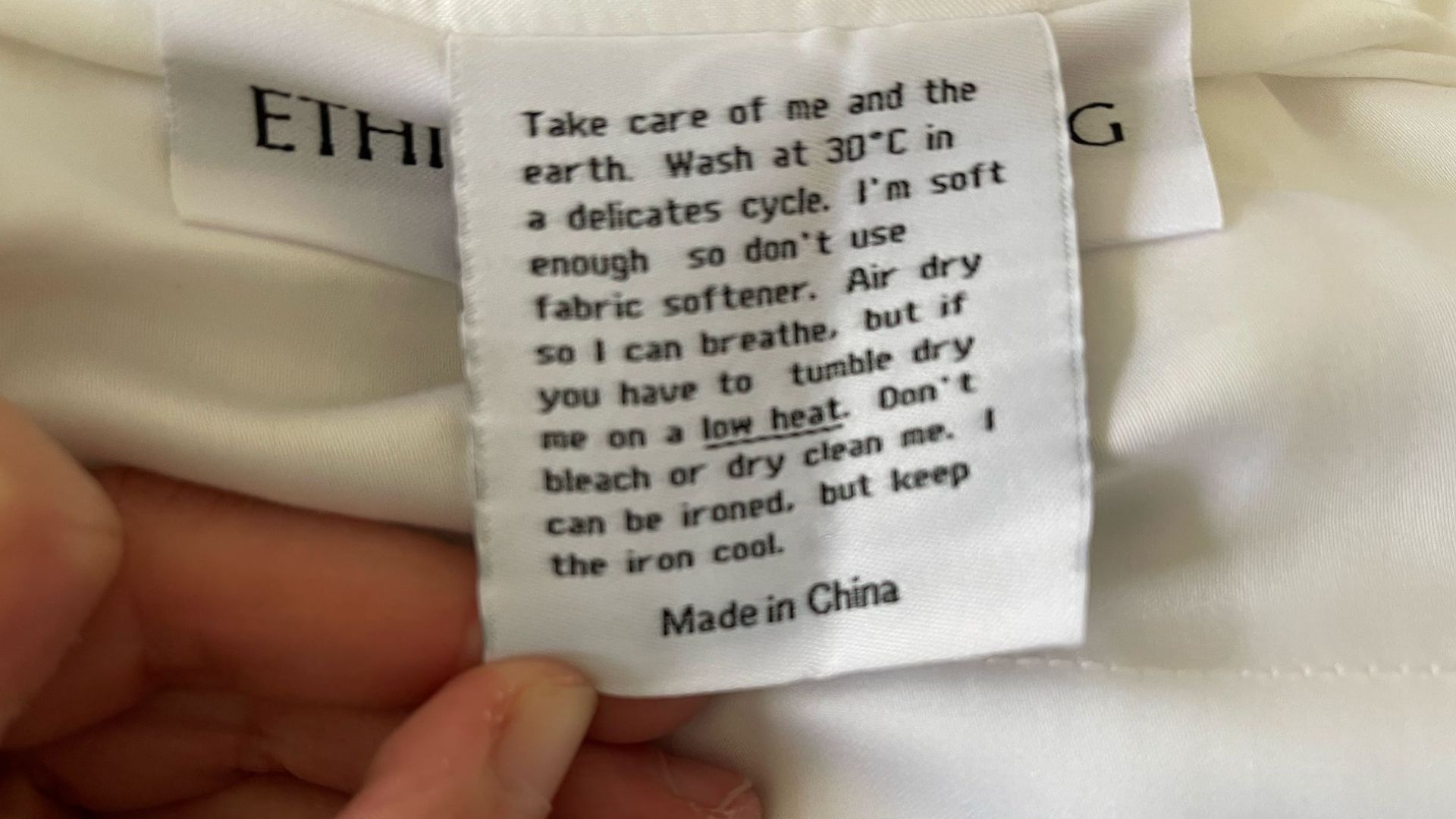
All the bedding that we recommend to you has been through rigorous rounds of testing with us at woman&home. Before we recommend the best bed sheets to you, we spend months sleeping on these sheets. We test them in different temperature conditions, with different sleep styles, and we go through washing them too. That means that we get a good sense of who these sheets suit, where they're great, and where you might want to look for an alternative.
In our reviews, we go into more detail on the composition, feel, and fit of the sheets. If you have a deep bed, sensitive skin, or very specific credentials, we will help to break these down in detail with you.
If you want to find out more, you can visit our dedicated page for how we test bedding.
FAQs
What do I need to know before buying bed sheets?
One crucial thing to consider when choosing your new bed sheets is the size you need to buy them. Simple? Yes. Easy to get wrong? Also yes.
Buying a bed sheet that's in the correct size might sound foolish but you'd be surprised by how many people actually do it, costing them both time and money. And it can happen all too easily, as many of the best mattresses don't adhere to a set, standardized sizing down to the exact centimeter.
"Whilst you should take into account the standard bed sheet size that matches your mattress (such as a double, king, super king, or queen), you also need to consider the depth of the mattress," explains Martin Seeley, CEO of bed specialist MattressNextDay. "If yours is extra thick or you use a mattress topper, you should size up—especially as some fitted sheets may shrink after continual use and washing."
A too-small bed sheet won't tuck under a mattress's corners, resulting in it pinging off throughout the night, so if you ensure and don't have the exact measurements of your mattress to hand, it's better to go up in size rather than down.
What are the best materials for bed sheets?
Whilst there is a wide range of materials that can be used to create bed sheets, there are five popular choices that people turn to over and over again...
- Cotton: Breathable, cool and cheap, it's little wonder that cotton is such a favorite. "Cotton sheets soften up with time, which is why it's important to wash a new bed sheet before putting it on," advises Seeley. "Cotton sheets also wash well, as they tend to maintain their durability."
- Polyester: Polyester can get a tough rap, but not always fairly. While itchy polyester can feel uncomfortable on skin, blended variations of the material can make a great budget-aware compromise. "Pure polyester sheets are rough, and not recommended unless you're on a tight budget," says Seeley. "Polyester blends, however, are much softer and also maintain their strength. They're easy to wash and don't need to be steamed or ironed." The downside of polyester-based sheets is that they're not as breathable as other materials, meaning polyester bed sheets won't keep you cool at night.
- Linen: If you're a hot sleeper or suffer with allergies, linen bed sheets are the ideal choice for you. "This is because linen is a naturally cool material and, therefore, allows plenty of airflow through the material," advises Seeley. "If you like a soft bedsheet, you should wash your linen bed sheets multiple times before using them for the first time, as they can be quite stiff compared to other fabrics."
- Bamboo: Looking for an eco-friendly option? Bamboo bed sheets could be the perfect choice for you. "They're more wrinkle-resistant than cotton, making them the ideal fabric for those that like the look of a hotel-standard bed," Seeley explains. "They're also hypoallergenic and breathable, making them perfect for those who tend to overheat at night."
- Silk: After something a bit more opulent for your boudoir? Romantic silk could be your perfect match. Seeley advises that silk tends to have a higher price point as "it's a natural fiber produced by silkworms, and therefore needs delicate care when being produced. This makes them more high maintenance to clean than other bedsheets."
What does thread count mean for bedsheets?
When shopping for bed sheets, it’s easy to assume that a higher thread count means better quality—but that’s not always the case. As Emily and Jonathan Attwood, founders of bedding brand scooms, explain, “Some manufacturers unfortunately achieve high thread counts by artificial means. Instead of counting individual threads they count each ply spun within each thread and then twist multiple yarns together which could indicate low quality cotton that is artificially strengthened in this way.”
So, what should you look for instead? “We would always recommend opting for high quality Egyptian cotton with a 400-600 thread count for a balance of softness, durability and breathability,” they advise. This sweet spot delivers comfort without compromising on quality.
What kind of bed sheets do five star hotels use?
According to the Attwoods, luxurious bedding often comes down to choosing the right fabric and thread count: “We would always recommend opting for high quality Egyptian cotton with a 400-600 thread count.” Egyptian cotton is widely used in luxury hospitality because of its breathability, smoothness and durability—so if you're looking to recreate that hotel feel at home, that’s a smart place to start.
How often should I wash my bed sheets?
Most experts recommend washing your bed sheets once a week. Of course, if you have spent a lot of time in bed, or you're struggling with night sweats, you might want to wash them more often. We've got all the expert advice in our guide to how often you should wash your sheets.
How much should I spend on bed sheets?
It can be tempting to go for the cheapest option, but when it comes to bedding, spending a bit more can make a big difference to both your sleep and the longevity of your sheets. As the Attwoods point out, “Do your research and look for brands that offer all natural bedding, with all the right accreditations and commit to ethical and sustainable practices – whilst the bedding may be more of an investment, it’ll serve you better and for much longer, whilst giving you the best night’s sleep possible.”
In other words, investing in well-made, natural bedding pays off in comfort and durability.
Can bed sheets help with menopausal symptoms?
Menopausal symptoms like night sweats and hot flushes can really affect your sleep—but choosing the right sheets can help. The Attwoods recommend steering clear of synthetics and focusing on natural materials: “Hot flushes and night sweats can really disrupt your sleep, making breathable and moisture-wicking fabrics an essential choice. Opt for natural materials like Egyptian cotton, linen or silk, all of which regulate your temperature and help to wick away moisture as you sleep.”
They add, “Lightweight and breathable bed sheets can make all the difference in helping you to get a restful night’s sleep, reducing the discomfort caused by overheating.”
So if you’re navigating menopause, your bedding might just be one of your best allies for cooler, more comfortable nights.
What mistakes do people make with their bedding.
If you’ve ever regretted a sheet set purchase, you’re not alone. The Attwoods highlight several common pitfalls: “These would include choosing synthetic fabrics that are not breathable, opting for lower quality fabrics that wear out quickly and falling for misleading thread count claims.”
Another overlooked factor is care: “Many also ignore the care requirements; some fabrics may require ironing or special washing instructions, whilst others like linen are low maintenance.”
Their advice? Look beyond buzzwords and focus on quality fabrics, sustainable practices, and ease of care to avoid bedding that disappoints in the long run.
Sign up to our free daily email for the latest royal and entertainment news, interesting opinion, expert advice on styling and beauty trends, and no-nonsense guides to the health and wellness questions you want answered.

Laura is woman&home's eCommerce editor, in charge of testing, reviewing and creating buying guides for the Homes section, so you'll usually see her testing everything from the best dehumidifiers to sizing up the latest Le Cruset pot. Previously, she was eCommerce editor at Homes & Gardens magazine, where she specialised in covering coffee and product content, looking for pieces tailored for timelessness. The secret to her heart is both simplicity and quality. She is also a qualified Master Perfumer and holds an English degree from Oxford University. Her first editorial job was as Fashion writer for The White Company.
- Tamara KellyLifestyle Editor